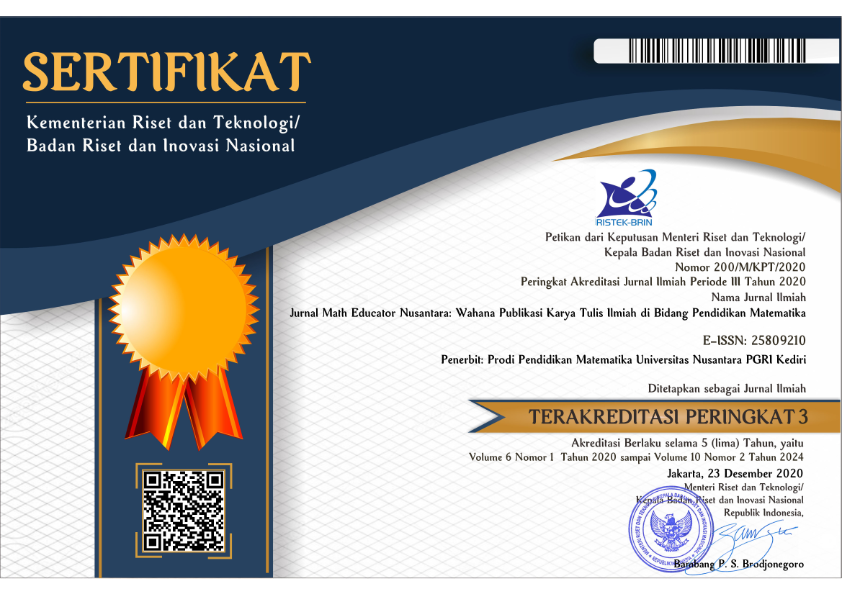Internalisasi nilai-nilai pendidikan Ki Hadjar Dewantara dalam model pembelajaran di perguruan tinggi (Studi eksperimen di jurusan tadris matematika)
DOI:
https://doi.org/10.29407/jmen.v2i02.223Abstract
Department of Mathematics education curriculum implementation Based KKNI who have not provided the container development of character education for students. This can be seen from the learning process in college that still relies on aspects of increased knowledge. Achievement of learning on aspects of attitudes / values still are administrative without being pushed on the feasibility of value investment education daily life. Applied learning models are still oriented to conventional learning eg discussions, lectures, discussion and assignment. It is necessary to present innovations in the learning model for students. Model-oriented learning in the context of nationalism (educational values Ki Hadjar Dewantara). so that by applying the learning model of value investment Ki Hajar Dewantara education can increase educational purposes at universities. The method used in this study is quasi-experimental design with a Two-Group Test post-only design. The population in this study that students of Department of Mathematics Education. The sample research nonprobability sampling using purposive sampling technique. Experiments in which the class is used as the Class A total of 39 students and the class is a class B control as many as 33 students. Results of research dianataranya that the student response to the application of learning models planting educational values Ki Hadjar Dewantara is quite good. Students learning attitude was quite good with a big achievement average score of 64.41. Effect of application of learning models planting educational values Ki Hadjar Dewantara attitude towards learning in mathematics education majors and significant effect on average there are differences in learning outcomes experimental class is higher than population control class learning outcomes. It states that the application of learning models planting educational values Ki Hadjar Dewantara effectively implemented in the Department of Mathematics Education.
Downloads
Published
Issue
Section
License
Authors who publish with this journal agree to the following terms:
- Copyright on any article is retained by the author(s).
- The author grants the journal, the right of first publication with the work simultaneously licensed under a Creative Commons Attribution License that allows others to share the work with an acknowledgment of the work’s authorship and initial publication in this journal.
- Authors are able to enter into separate, additional contractual arrangements for the non-exclusive distribution of the journal’s published version of the work (e.g., post it to an institutional repository or publish it in a book), with an acknowledgment of its initial publication in this journal.
- Authors are permitted and encouraged to post their work online (e.g., in institutional repositories or on their website) prior to and during the submission process, as it can lead to productive exchanges, as well as earlier and greater citation of published work.
- The article and any associated published material is distributed under the Creative Commons Attribution-ShareAlike 4.0 International License














